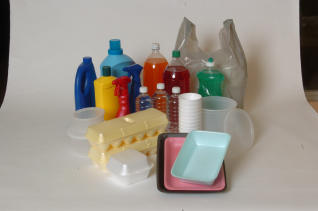
No plastic excuses for Canada
By Canadian Packaging Staff
Sustainability Canadian plastic Industry Association CPIA HDPE PET plastic bottles recycled plastic bottles Recycling of Post Consumer Plastic PackagingStudy shows majority of Canadians have access to recycling most consumer plastic packages.
In the newly updated report on Population Access to the Recycling of Post Consumer Plastic Packaging, May, 2013, prepared for the Canadian Plastics Industry Association (CPIA), findings show that an increasing number of Canadians have access to recycling many different forms of plastic packaging.
There is nearly country-wide access to recycling for the more common types of plastic packaging for example: 95 per cent of Canadians have access to recycling PET (Polyethylene terephthalate) and HDPE (High-density polyethylene) plastic bottles; 70 – 93 per cent recycling access for other bottles; and, 52 – 93 per cent of Canadians are now able to recycle other non bottle plastic rigid containers.
As well, 61 per cent of Canadians have access to the recycling of plastic bags and other films.
Moreover, the study shows that not only is access high for most Canadians, but that for most plastic packaging, Canadians’ access to recycling plastics packaging continues to grow every year.
For example, compared to the study’s results for 2011 for non bottle rigid plastics: 93 per cent of Canadians have access to recycling of household tubs and lids used for yogurt containers and other dairy products, up from 91 per cent in 2011; 89 per cent access for PET non-bottle rigid packaging (such as trays or bakery clamshells up from 76 per cent in 2011; and 54 per cent access for polystyrene non bottle rigids, up from 44 per cent in 2011.
Also up from 2011 to 2013 is access to recycling of plastic bags and other films. The rate has risen to 61 per cent from 56 per cent in 2011.
It is important to note that the report only measures access as having municipal or private curbside pick up of the material or a drop off depot where the material is accepted.
Plastic bags are accepted at many retail locations across the county so the opportunity to recycle these is likely significantly higher than 61 per cent.
The population access for recycling foam polystyrene increased from 2009 to 2011 to a level where just over 30 per cent of the population has now the opportunity to recycle polystyrene.
It has remained at this level in 2013, even though many more regions across the country, particularly in western Canada, are accepting this material in their recycling systems. Due to fewer MRFs (materials recovery facilities) in Quebec now accepting the material, the rate is generally unchanged since 2011.
 In addition, the study, for the first time, identified the extent to which municipalities in Canada now promote the collection of all rigid plastic containers as well as plastic bottles.
In addition, the study, for the first time, identified the extent to which municipalities in Canada now promote the collection of all rigid plastic containers as well as plastic bottles.
The result is that 53 percent of Canadians have access to recycling all plastic containers (excluding bulky plastics such as crates and buckets).
“Municipalities which promote the inclusion of all plastic containers are key to the increases in recycling access for plastics that we see today,” says CPIA vice-president Cathy Cirko.
Recycling programs were examined to determine the extent which caps are included for recycling collection. The study found that only 57 per cent of the population is able to include caps in their recycling programs. The majority of programs in Quebec and Ontario include caps while in Atlantic Canada and the western provinces it is the opposite.
“We will be working to broaden the inclusion of caps in recycling collection programs because recyclers want them and we don’t want them potentially entering the marine environment,” Cirko adds.
“We are delighted that so many more Canadians have access to plastics recycling in their communities than ever before,” states CPIA chief executive officer and president Carol Hochu. “We will continue to work with stewardship agencies and municipalities across Canada to help increase awareness, so that more people will recycle, diverting valuable plastic resources, and supporting our recycling industry.”
The CPIA is the national voice of Canada’s plastics industry, representing the interests of processors, material suppliers, equipment manufacturers and brand owners across the country.
For more information on the CPIA, visit www.plastics.ca.
Advertisement

